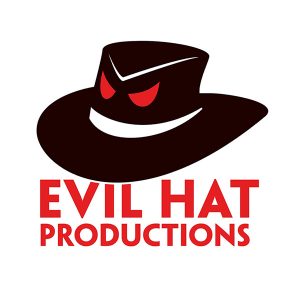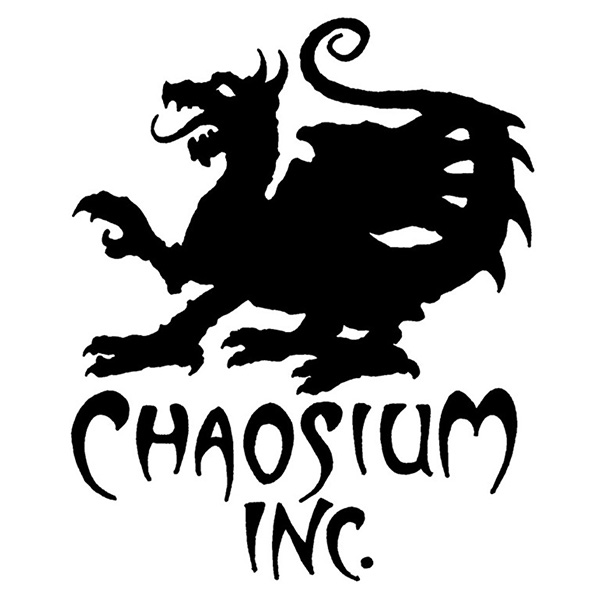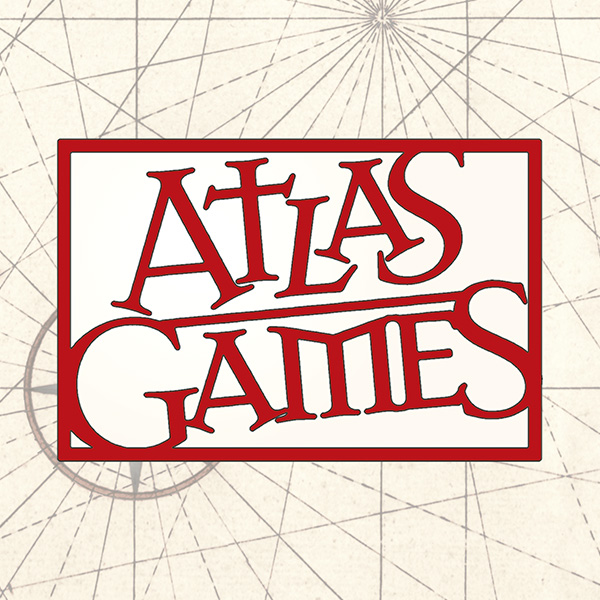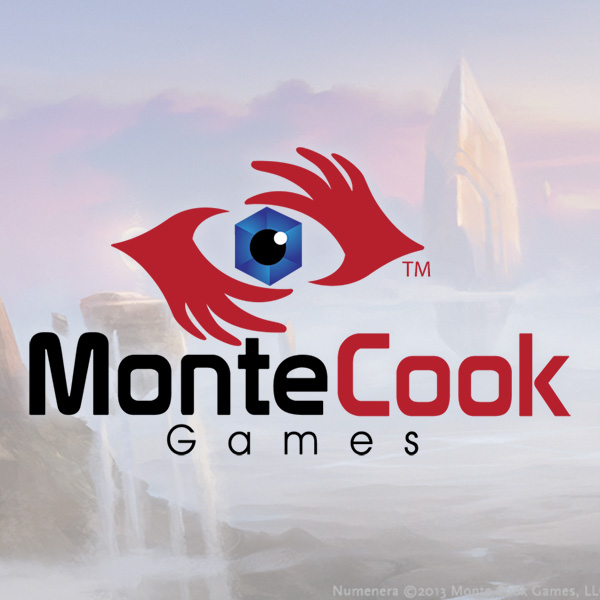Welcome to the second installment of New Gamemaster Month!
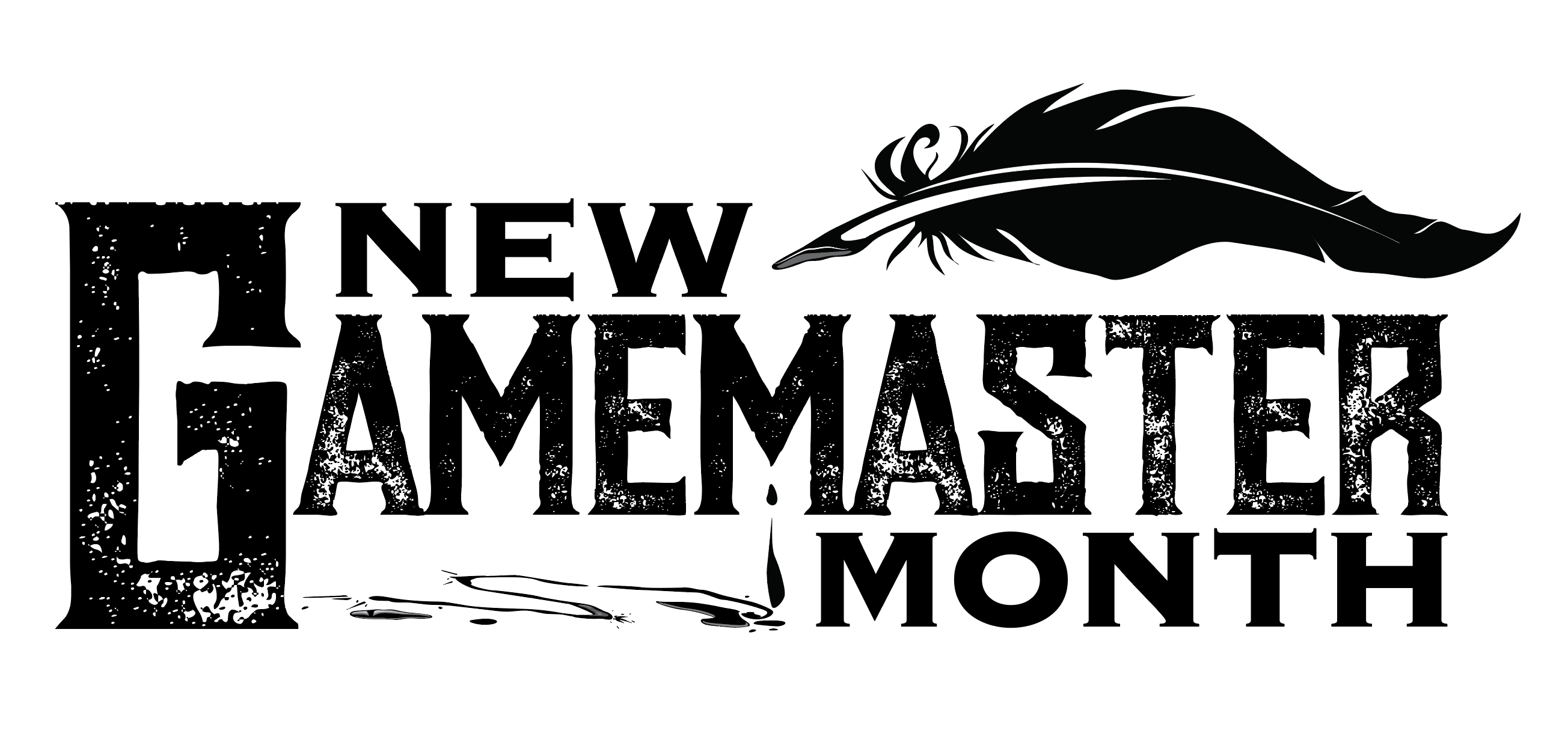
In New Gamemaster Month we’re helping players who feel the urge to run an RPG—to become a GM for the first time—take the plunge. If you’re just joining us, start with the first installment. Then join us every Tuesday and Thursday throughout January, and by the end of the month you’ll be a GM too!
In our last post, we introduced the idea behind New Gamemaster Month and asked you to get your hands on the corebook for your game of choice. If you’re just joining the program, go back and read that post. Then click your way back here and read on!
Today we’re going to delve into some of the specifics of preparing for your first session. Before we do, though, I want to touch on one topic:
Is It Always This Much Work?
We’re going to spend a month getting you ready for your first adventure. Eight posts, and eight activities, each of which might take you an hour or so—and that’s just for your first game session. Perhaps you’re feeling a little panic when you think that your first adventure might span two or three whole evening-length sessions. And it’s just the start of what might be a lengthy campaign! Is this really such a good idea???
Relax: It’s not always like this. We’re covering a lot of ground that you won’t have to cover again, and a lot of what we’re doing this month will soon become second nature to you. Being a GM does require some prep work, but it’s not too daunting, and how much you put into it is entirely up to you.
Every GM has a different experience, and every game system has different characteristics, but many GMs experience a long-term average of one hour or so of prep time per evening-length game session. That’s often front-loaded, so the launch of a new campaign might involve a great deal more time, while individual sessions later in the campaign require little or no prep. If you’re creating your own adventures, or building your own setting, you’ll probably spend more time getting ready than if you run published adventures—but that’s OK, because many GMs find creating and running new adventures to be especially rewarding.
Regardless, the short answer is no, it isn’t always this much work!
Running Your First Game Virtually
In the last post we talked about choosing a platform. This segment’s preparation for a virtual game is simple: Get on that platform.
If you haven’t already, create an account. If you want to use Roll20, there are simple instructions for creating your account in the last post. Other VTTs are similar. If you’re using Zoom, Discord, or a similar platform, you’ll want an account there. Some platforms, like Zoom, impose a time limit on free account usage, so you may want to look into that and upgrade to a paid service level. If you’re supplementing a video service with a text chat platform like Discord, make sure you have an account there as well.
As you’ll see in the tabs below, your New Gamemaster Month step today is to wrangle your players. Be sure to tell them which online platform you intend to use, so they can establish accounts as well.
The adventure you’re going to run is called Taker of Sorrow. You’ll find it on page 363 of Numenera Discovery. We’ve picked this adventure because it’s a great introduction to Numenera for new players and is easy on GMs running Numenera for the first time. Feel free to look it over, but you don’t have to read it just yet.
Here’s what you do need to do now:
Choose a Time and Place
First, decide when and where you’re going to hold your first game session. The weekend of February 2nd ties in nicely with the New Gamemaster Month syllabus. But if that doesn’t work out, choose a later date. And be prepared to be flexible, because obviously you won’t be the only one involved—you’ll need a time and place that work for your players as well as for you. Speaking of which:
Wrangle Your Players
Reach out to some potential players. Perhaps you’ve already been talking about this with some of your friends or family. Or maybe this will be a complete surprise to them. Either way, identify some people for whom you’d like to run the game. Four or five players is an ideal group size, but three to six is fine. You can run a game successfully with only two players, or even just one, but it’s a bit more difficult. And with more than six it can be very challenging to keep everyone engaged. (And sometimes just to fit them around the gaming table!)
How you go about it is up to you, but it might be best to contact about half a dozen people initially. That way, if everyone says yes your group won’t be too big, but if a couple of people can’t make it, you’ll still have enough players. If you don’t get enough yes responses from that group, maybe reach out to one or two more.
Tell the players you plan to run Numenera (you can tell them the name of the adventure if you like), and suggest your preferred time and place. A website like whenisgood.net can be helpful if scheduling is difficult.
Who should you invite? That’s easy: People you think you’ll have fun with. If you already have an existing gaming group, that’s a good place to start. If not, just gather some folk who you’ll enjoy spending several hours with (and who will enjoy spending a few hours with each other!). They don’t need to be experienced gamers, or experienced with Numenera in particular.
Do A Little Initial Reading
Finally, read Part 1 of Numenera Discovery. It begins on page 11 and runs for ten pages, so it shouldn’t take you too long. This section gives you a foundation regarding the world and the game system. (One quick note: In Chapter 2, the text is directed at “you.” In this case, “you” generally means the players more than the GM—for example, when it talks about “you” making rolls, that’s always the players.) There’s more to know, but we’ll tackle it as we go.
This is so exciting! You’re on your way—once you complete these activities, you’ll have committed yourself to your first game session. Don’t panic: It’s going to be great.
We’ll take our next steps on Tuesday!
Before you can start exploring the occult underground of Unknown Armies, you are going to need some friends and a place to play. In this game, the GM works with the players to create setting details, plot, and more. That means you don’t have to know what adventure you’ll run yet—everyone will share the load.
Read Some Setting Info
Before you start trying to convince people to play Unknown Armies with you, you need a basic understanding of what it’s about. Read pages 5-14 in Book One: Play. These nine pages will give you a grasp of the setting and rules for Unknown Armies without getting bogged down in too many details. You can also skim Book 3: Reveal to see what creatures, artifacts, and weirdness can be found in the setting.
Find Your Players
Armed with some idea of what Unknown Armies is like, it’s time to find your players. Although you can run an RPG with just two people, the sweet spot is around five. As a new GM, try not to go beyond six players because it’s hard to keep that many people involved.
How do you find players? Start by talking to your friends and family who might be interested. You can explain that Unknown Armies is somewhat like “Modern Magick meets David Lynch.” If your friends don’t understand what that means, just say it’s a creative way to have fun—and there will be snacks. (You can also direct them to this short video created for the game’s Kickstarter campaign.)
To reach more people, you can extend a general invitation on social media. Post on Facebook with something like, “Anyone up for a game of Unknown Armies? It’s a roleplaying game where you play obsessed characters who can do magick in the modern age. You don’t even need to know the rules or own any books. Just come and have fun!”
Keep inviting people to join your gaming group until you have three to five players. Then you have to figure out where and when to play.
Choose Where and When
Once you’ve found some folks interested in playing Unknown Armies, it’s time to settle on where and when. The weekend of February 2nd ties in nicely with the New Gamemaster Month syllabus. Thankfully, modern technology has made choosing a time so much easier than it used to be.
Chat with everyone by text, instant messenger, or even a group Skype call. As the GM, get the ball rolling by suggesting a particular place and time. Then the players can say if that works or not. Keep talking until you’ve found something that works for everyone. Also, remind players that a roleplaying game isn’t done after the first game session. That means picking a date and time that works week after week. (You can also play weekly, bi-weekly, monthly, or whatever.)
One option is to play online. These days, there are some great online tabletop apps like Roll20 or Tabletop Simulator. Unknown Armies doesn’t require maps or pieces, so you can also play a great game using Skype or Google Hangouts. All you need is a way to talk together.
At times, you might feel like being the GM is a lot of work. It’s not! Again, much will be done collaboratively with players. The work you will need to do can be fun and exciting as well, and at the end of a game session, you’ll be proud of what you’ve created.
Next Tuesday, we’ll talk some more about the setting and rules. Until then, your activity this week is to read pages 5-14 in Book One: Play, find some players, and set up where and when you’ll play.
The adventure you’re going to run is called Midnight Sub Rosa (downloadable here). We’ve picked this adventure because it’s a great introduction to Trail of Cthulhu for new players, and it was designed to be particularly easy on GMs running Trail for the first time. Feel free to look it over, but you don’t have to read it just yet. Here’s the two-minute pitch–The player characters are sent to a gathering of occultists to retrieve a magical diary, and one of the people they meet is secretly planning to use the diary to conduct a horrific ritual. They’ve got to find the culprit and stop the horror.
Here’s what you do need to do now:
Choose a Time and Place
First, decide when and where you’re going to hold your first game session. The weekend of February 2nd ties in nicely with the New Gamemaster Month syllabus. But if that doesn’t work out, choose a later date. And be prepared to be flexible, because obviously you won’t be the only one involved—you’ll need a time and place that work for your players as well as for you. Speaking of which:
Wrangle Your Players
Reach out to some potential players. Perhaps you’ve already been talking about this with some of your friends or family. Or maybe this will be a complete surprise to them. Either way, identify some people for whom you’d like to run the game. Three or four players is ideal–you can play with more, but it’s hard to run an atmospheric horror game for a big group.
How you go about it is up to you, but it might be best to contact about half a dozen people initially. That way, if everyone says yes, your group won’t be too big, but if a couple of people can’t make it, you’ll still have enough players. If you don’t get enough yes responses from that group, maybe reach out to one or two more.
Tell the players you plan to run Trail of Cthulhu (you can tell them the name of the adventure if you like), and suggest your preferred time and place. A website like whenisgood.net can be helpful if scheduling is difficult.
Who should you invite? That’s easy: People you think you’ll have fun with. If you already have an existing gaming group, that’s a good place to start. If not, just gather some folk who you’ll enjoy spending several hours with (and who will enjoy spending a few hours with each other!). They don’t need to be experienced gamers, nor experienced with Trail of Cthulhu. Think of aficionados of murder mysteries, horror movies, or historical fiction in your circle of friends.
Do a Little Initial Reading
Read the first column of the Introduction on page 6 of Trail of Cthulhu, and skim the chapter on The Thirties (page 168 through page 189). Midnight Sub Rosa is set in the United States, so you don’t need to read all the material about the rest of the world. Also, take a look at the Armitage Inquiry campaign frame on pages 206-207, which is in the background of the scenario. Again, you don’t need to read too deeply, or know all the people mentioned there–just get a feel for the ‘secret band of academics investigating the Cthulhu Mythos’ theme.
We’ll take our next steps on Tuesday!
The adventure you’re going to run is called “A Rough Landing”, the first in the Adventures booklet. We’ve picked this adventure because it’s a great introduction to Glorantha for new players and it was designed to be particularly easy on gamemasters running RuneQuest for the first time. Feel free to look it over, but you don’t have to read it all the way through just yet.
Here’s what you do need to do now:
Choose a Time and Place
First, decide when and where you’re going to hold your first game session. The weekend of February 2nd ties in nicely with the New Gamemaster Month syllabus. But if that doesn’t work out, choose a later date. And be prepared to be flexible, because obviously you won’t be the only one involved—you’ll need a time and place that work for your players as well as for you. Speaking of which:
Wrangle Your Players
Reach out to some potential players. Perhaps you’ve already been talking about this with some of your friends or family. Or maybe this will be a complete surprise to them. Either way, identify some people for whom you’d like to run the game. Four or five players is an ideal group size, but three to six is fine.
How you go about it is up to you, but it might be best to contact about half a dozen people initially. That way, if everyone says “Yes” your group won’t be too big, but if a couple of people can’t make it, you’ll still have enough players. If you don’t get enough “Yes” responses from that group, maybe reach out to one or two more.
Tell the players you plan to run RuneQuest (you can tell them it’s from the new Starter Set if you like) and suggest your preferred time and place. A website like whenisgood.net can be helpful if scheduling is difficult.
Who should you invite? That’s easy: People you think you’ll have fun with. If you already have an existing gaming group, that’s a good place to start. If not, just gather some folk who you’ll enjoy spending several hours with (and who will enjoy spending a few hours with each other!). They don’t need to be experienced gamers or experienced with RuneQuest or Glorantha in particular.
Get Your Feet Wet, Then Take the Plunge
The best way you can prep yourself is to go through Rules book to understand the high-level concepts of how the rules work. There’s a combat example on pages 32–33 to walk you through a combat round.
Now it’s time to play through the SoloQuest booklet. This solo adventure was made specifically to introduce the core aspects of the game rules to the gamemaster in stages. Get out your dice, the adventurer folios for Vasana and Vostor, and a sheet of scratch paper to take notes on. You can even play through the SoloQuest online!
That link takes you to the online playthrough, the adventurer sheets for Vasana and Vostor, and includes an integrated dice roller and tracker to your character’s hit points, magic points, and Rune points!
The reference sheets are here, if you need them.
When you’re done with the SoloQuest, you’re more than able to handle a game session, particular “A Rough Landing”, the one you’ll be running. Everything else depend on this basic system. These rules provide a foundation regarding the entire game’s mechanics. You may even want to play it through more than once, to see what happens if you make different decisions or have unfortunate outcomes! Be careful, as your adventurer can be killed! Take some notes if something’s unclear.
This is so exciting! You’re on your way—once you complete these activities, you’ll have committed yourself to your first game session. Don’t panic: It’s going to be great.
We’ll take our next steps on Tuesday!
Throughout this series we’ll use the adventure (or “mystery” in Monster of the Week parlance) “Dream Away the Time” as the basis for our play advice. You can find the mystery detailed in pages 149 through 161 of the book and available in the Roll20 Marketplace as a free module.
The Keeper’s Job
Monster of the Week is an improvisational game. You will start each mystery having defined the monster and other details, but you won’t know how the situation will play out once the Hunters get involved. Let them do what they want: it’s your responsibility to decide how the people and monsters and anything else react to those actions. In a sense, you are all exploring the mystery together.
Rather than worrying about whether the team is discovering the “right” solution to the mystery, your focus will be on following the Keeper’s agenda:
- Make the world seem real and interesting.
- Play to see what happens.
- Make the hunters’ lives dangerous and scary.
If this sounds a bit like walking a high-wire act, don’t worry: we have plenty of advice over the next few weeks to help you feel prepared and comfortable when game time arrives.
Safety and Consent
It’s always important to make sure everyone at the game table is signing up for the same kind of experience but this is particularly true in an urban fantasy or horror game like Monster of the Week. Make some notes about what you think the tone of the game will be. Make a list of what is acceptable “on screen”, what is acceptable as implied but off-screen, and what is never acceptable. Be prepared to review, revise, and add to this list with the other players. If you really want to get ahead of things, you can have this conversation ahead of the game session.
It’s also helpful to have some safety tools in play for those times when something you didn’t expect pops up. Take a look at some of the following options:
- Lines and veils: Useful for any length game.
- X Card: Particularly useful for short games with people you know less, such as convention events
- Script Change Toolbox: Useful for any game length, very effective with people who already have a trust relationship.
If you are new to this type of discussion, you can read a primer from MCG, Consent in Gaming. If you are using the Roll20 module, you will find some of these tools already integrated and you can add mechanisms like Script Change and the X-Card for free with the RPG Safety Toolkit.
Sections to Read & Review: The Keeper (pages 127-131).
If You’re Using Roll20
If your players want to make their Hunters, jot down your premise and whatever constraints you’re going to place on the game world and characters, and share them with the players in a handout. Give the players editing rights and let them add their ideas as an initial brainstorming session.
Create one blank character sheet per player and give the player’s editing control.
To quickly get up and running, the Roll20 module includes a sample team of four hunters which uses the Unexplained Cases Team premise.
Wars are won on logistics. It’s about getting the people you need and the equipment they need to the objectivesyou must take. This week, we prepare the ground for your first Delta Green game.
This step is challenging. The load was calibrated according to our confidence in you. We know you can get it done.
These were our actionables at the end of the last briefing:
- Primary Objective A: Get a copy of Delta Green: Need to Know.
- Primary Objective B: Read pages 5–9, “Welcome to Delta Green.”
- Bonus Objective: Read the following sections as time allows and in this order of priority.
- Pages 11–19, “What is an Agent?”
- Pages 35–41, “Game System”
- Pages 43–50, “Last Things Last”
Ensure that the primary objectives have been completed before moving forward.
Study “Last Things Last”
Pages 41–48 of Need to Know are the scenario “Last Things Last.” Look it over. It’s important to understand the structure of the story you’re trying to help the players create and the kinds of horror their Agents might face.
“Last Things Last” is about a Delta Green agent dead from natural causes. Delta Green sends the players’ Agents to sanitize his effects of any evidence of the group’s war with the unnatural.
While sifting through the sad future that awaits them, the Agents discover that the dead man held secrets of his own in a remote cabin. They find the remainders of his greatest shame, his failure to resist the temptation of the power he had fought. A creature from beyond sanity attempts to prey on the Agents’ best intentions so it might escape and wreak havoc.
Prepare the Players
Start a discussion with all the players by email or chat or however you best communicate. Discuss the game to come.
Send every player a PDF copy of Need to Know. They can learn the rules if they wish. Tell them they are not cleared to read “Last Things Last” on pages 41–48 until you finish running it for them.
Need to Know comes with six Agents ready to play. Later we’ll cover what to do if your players want to create their own Agents. For now, come to an agreement on whether to create new characters or use pregens. I suggest an all-or-nothing approach. Either ask all players to choose pregenerated characters from Need to Know or ask all to create new Agents from scratch. It sucks to have to wait for someone to craft a character from scratch when all you planned to do was grab a ready-made off the rack.
Make sure everyone understands the context of Delta Green. Explicitly warn them that this is a horror game. Delta Green operates without a net for a character’s survival and sanity. It keeps the stakes high and the mood scary. Careless Agents quickly become dead Agents.
By now, you should be familiar enough with Need to Know that you can answer player questions and concerns. If you are a veteran gamer, consider a player safety tool such as the X-Card to ensure everyone remains invested in the story.
Collect Player Schedules and Find Overlaps
If you’re lucky enough to already have a gaming group, you can just take over the schedule for a week or two to run Delta Green. (We don’t care how you take it over. We don’t even want to know. Just get it done.)
If you don’t already have a gaming group, that means building one. I’m not going to lie: this part can be hard.
Establishing a time for your players to meet is by far the most difficult part of the job. Even with a helpful scheduling program such as Slack or When Is Good, finding a time when everyone can meet has been the end of many a Handler.
You, however, shall not number among the fallen. You are prepared because you are reading this. You are putting in the work. You know that if you persist and find the right time to strike, everything from here on in will be cake. You have a month to prepare before we hit our operational date in February. You can do this.
Once You Know When You Can, Figure Out When You Should
Handlers that get organized about scheduling often find unexpected opportunities to meet. If you’re lucky enough to have multiple times when you can game, pick the best option. Look for a day and time when everyone will be rested and ready. The mental state of your players determines the quality of their stories.
If Claire and Michael just finished an eight-hour car ride returning from their in-laws, see if another night works better. Just because they can game that evening doesn’t mean they can game well. This is especially true of those new to roleplaying games. Pick the time that offers maximum comfort for all participants.
If You Meet in Person…
Let’s talk about operational security. If you should be party to a timeline in which THE EVENT remains an ongoing threat, under no circumstances should your group meet in person. Face-to-face operations are dangerous enough when you consider the risks of hostile surveillance. They are an absolute no-go in instances of possibly lethal infection.
Those of you reading this might be from timelines that have yet to experience THE EVENT. You may still know the touch of a loved one without fear of finding one of them hiding behind their eyes. Even under such favorable conditions, keep space concerns in mind. People need to stand up, pace, go to the bathroom, spread out, lean. Seat players according to their needs.
Find someplace quiet for your game. Coffee shops and restaurants and pubs offer many conveniences but they may come with too much noise. Too many distractions. Too many risks. Anyone could be watching and listening.
Wherever you meet, bear the physical needs of your players in mind. The thing you call a soul lives in a quivering pile of skull-jelly that runs on sugar. That little meat computer needs glucose to fire the little sparkplugs that make us feel things. Provide sustenance so players can perform at peak effectiveness. Take their dietary concerns into consideration and make them your own.
This could be your last night together. Try to make it nice.
If You Meet Online…
Some level of tech support may be required. Unfortunately, this task falls to you. Even if you are lucky enough to have a player who can help, you need to know what’s happening and how to get every player to the game.
Choose your platform. Delta Green: Need to Know is available on the popular site Roll20. A Delta Green fan community called A Night at the Opera thrives on Discord and Reddit. You can easily run a game on any online meeting platform you prefer.
Ensure that everyone has access to a stable Internet connection and a basic understanding of the meeting platform. This is mission-critical. A single player flailing over what should be the simple task of connecting can divert an entire operation. Thankfully, any number of tutorials on how to start an online game are available online. Start with one at Lifehacker, Medium, or Polygon if you like.
Once the necessary connections are made, try an initial chat with all players to test the software. Work out trouble before it’s time to play the game.
Secure Necessary Materials
Whether online or in-person, Delta Green requires certain tools to play. These items are listed in Delta Green: Need to Know on page 6: a way to keep notes and a set of dice.
Online, a shared document such as Google Docs can be tremendously useful for players to keep notes.
Platforms such as Roll20 and Discord come with ways to roll dice online. Or the Handler can roll dice for everyone and tell the players the results. Or you can let players roll their own dice and trust them to be honest.
Actionables:
- Primary Objective A: Read “Last Things Last,” pages 41–48 in Delta Green: Need to Know.
- Primary Objective B: Collect player schedules for the first two weeks in February and find a time to play the game.
- Primary Objective C: Plan and prepare a meeting space, either online or in person. Gather materials needed as listed on page 6 of Need to Know.
- Primary Objective D: By email or chat, discuss the game with the players. Decide whether players will develop their own Agents or use the pregenerated Agents from Need to Know. Ensure everyone understands the nature of Delta Green and is ready to play its kind of horror.
- Primary Objective E: For an online game, schedule a brief online meeting to test software.
That’s a lot, but these logistical concerns are paramount. We’ll provide lighter duties next time.
To save prep time, GMs can access a plethora of RPG content on our Marketplace that is pre-built for your Roll20 satisfaction. Everything from art packs, tokens, and maps, to modules, Compendiums, and card decks can be purchased on the Marketplace and integrated into your Roll20 campaigns.
Many of the publishers participating in New Game Master Month feature content for you to enjoy on the Roll20 Marketplace—no additional setup required! Here are some examples you can check out—some directly support the publisher’s New Gamemaster Month adventure, while others are just examples of the sorts of things offered on the Roll20 Marketplace.
Arc Dream Publishing – Swords & Sorceries – The Sea Demon’s Gold
This is an Addon. Once purchased, it can be added to any existing game from the Campaign Details page.
Chaosium – Call of Cthulhu Starter Set
This bundle includes introductory rules for CoC 7th Edition, as well as several modules for different numbers of players. Once purchased, modules are available for selection when creating a new game.
Evil Hat – Monster of the Week Mystery Bundle
This bundle includes several modules from the Monster of the Week collection, as well as token markers and an art pack. Once purchased, modules are available for selection when creating a new game, and art and tokens are available in your Art Library on the VTT.
Monte Cook Games – Numenera Deck Bundle
This bundle includes 9 card decks for your Numenera games. Once purchased, the decks can be added to any existing game from the Campaign Details page using the Addon dropdown menu.
Pelgrane Press – Midnight Sub Rosa
This module is a one- or two-shot adventure for Trail of Cthulhu, including 6 pre-generated Investigators, handouts, and maps. Once purchased, the module is available for selection when creating a new game.
Throughout this program, we have expert GMs on hand to answer questions and provide general support at the New Gamemaster Month Discord Server or the New Gamemaster Month Facebook group. Please drop in, join the group, introduce yourself, and ask any questions you might have. Other new GMs will also be there—it’s a great place to share your experiences and support one another. Hope to see you there!

